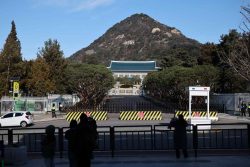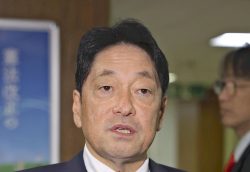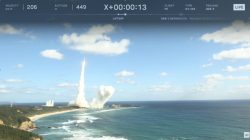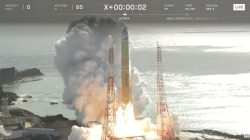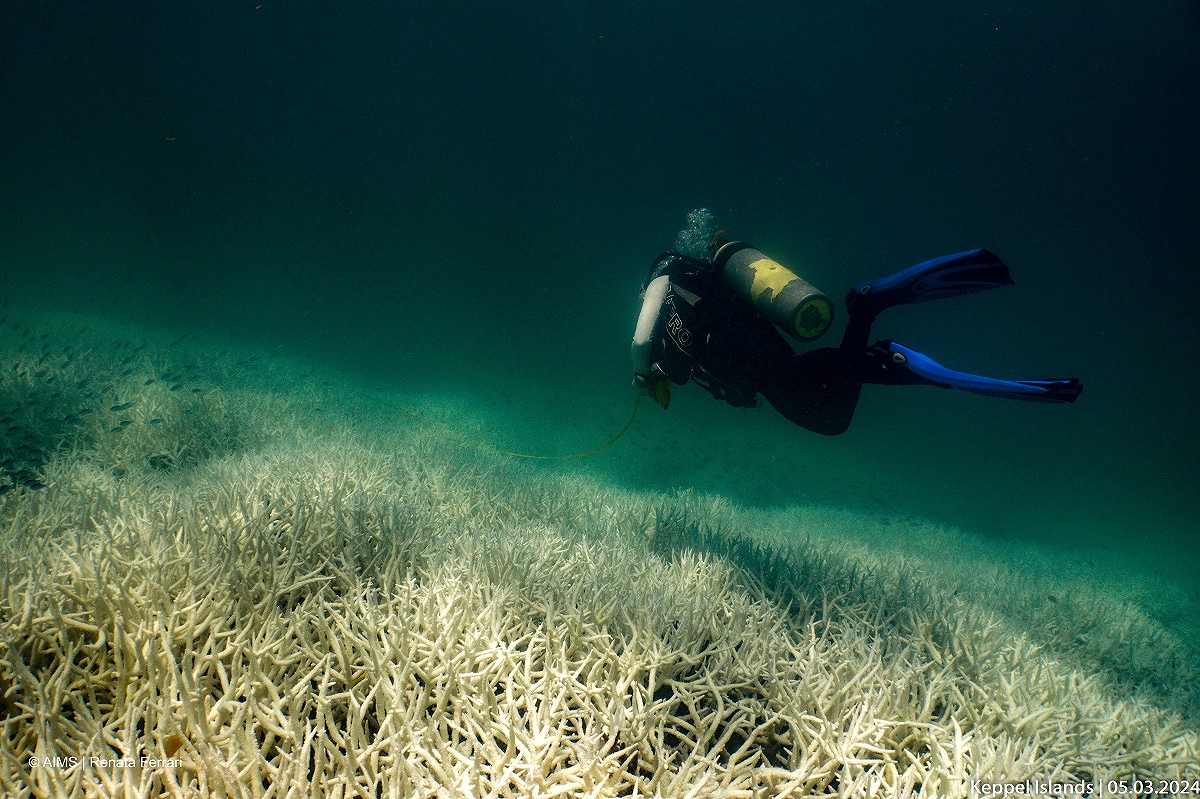
A diver observes the coral bleaching at Southern Great Barrier Reef, Keppel Islands, Australia, March 5, 2024.
15:54 JST, March 15, 2024
SYDNEY, March 15 (Reuters) – Australian researchers have found coral bleaching around six islands in the far northern parts of the Great Barrier Reef, after a government agency said last week a major bleaching event was unfolding across the world’s most extensive reef ecosystem.
Scientists at the James Cook University said on Friday they found only a few relatively healthy areas, mostly in deeper waters, after surveying sites at the Turtle Group National Park, about 10 km (6.2 miles) offshore the state of Queensland.
“It was quite devastating to see just how much bleaching there was, particularly in the shallows … (but) they were all still at the stage of bleaching where they could still recover as long as the water temperatures decline in time,” lead researcher Maya Srinivasan told Reuters.
Bleaching is triggered by warmer ocean waters, which cause corals to expel the colorful algae living in their tissues and turn white. A bleached coral can recover if waters cool but if ocean temperatures remain high for longer periods, it will die.
Stretching about 2,300 km (1,429 miles) along Australia’s northeastern coast, the Great Barrier Reef has seen five mass bleaching events in eight years, which experts have tied to climate change.
The six islands in the Turtle Group were new additions to the university’s monitoring program in the barrier reef and the data collected from here would help further analyze how corals are affected by bleaching, cyclones and floods, Srinivasan said.
“With climate change where there’s predictions that these sorts of disturbance events will become more frequent and be of higher intensity … it’s becoming even more crucial than ever to have these long-term monitoring programs continue into the future,” Srinivasan said.
Australia’s Climate Council said the abrupt changes signal greater dangers for the reef and the possibility of crossing points of no return in the climate system.
“What’s happening on the Reef right now could be described as an underwater bushfire,” Climate Council Research Director Simon Bradshaw said.
($1 = 1.5246 Australian dollars)
"News Services" POPULAR ARTICLE
-

American Playwright Jeremy O. Harris Arrested in Japan on Alleged Drug Smuggling
-

Japan’s Nikkei Stock Average as JGB Yields, Yen Rise on Rate-Hike Bets
-

Japan’s Nikkei Stock Average Licks Wounds after Selloff Sparked by BOJ Hike Bets (UPDATE 1)
-

Japan’s Nikkei Stock Average Buoyed by Stable Yen; SoftBank’s Slide Caps Gains (UPDATE 1)
-

Japanese Bond Yields Zoom, Stocks Slide as Rate Hike Looms
JN ACCESS RANKING
-

Keidanren Chairman Yoshinobu Tsutsui Visits Kashiwazaki-Kariwa Nuclear Power Plant; Inspects New Emergency Safety System
-

Tokyo Economic Security Forum to Hold Inaugural Meeting Amid Tense Global Environment
-

Imports of Rare Earths from China Facing Delays, May Be Caused by Deterioration of Japan-China Relations
-

University of Tokyo Professor Discusses Japanese Economic Security in Interview Ahead of Forum
-

Japan Pulls out of Vietnam Nuclear Project, Complicating Hanoi’s Power Plans


